#communication network
Explore tagged Tumblr posts
Link
#Bt corn growers#Frequency of contact#Information exchange#Total information score#Usefulness of information#Communication network#Opinion leaders
1 note
·
View note
Text
0 notes
Text
compilation of dunmeshi images saved to my computer under variations of "FOUND FAMILY REAL":
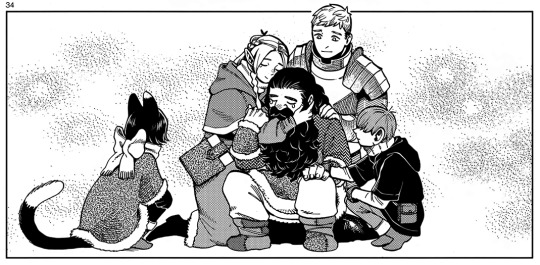
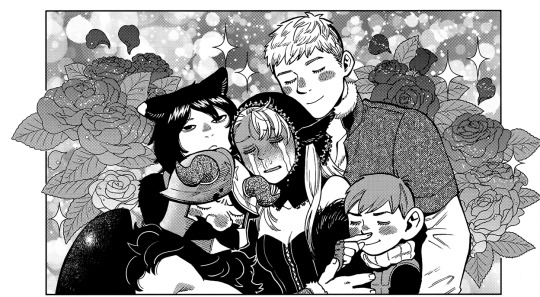
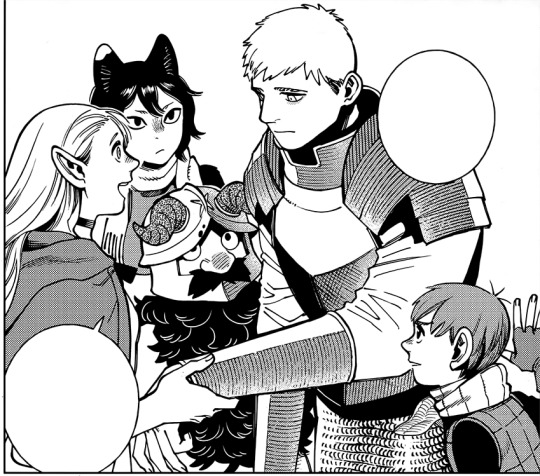
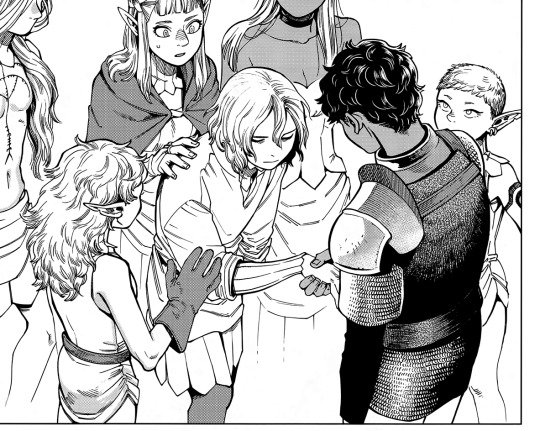
#dungeon meshi#dungeon meshi spoilers#laios touden#marcille donato#senshi#chilchuck tims#izutsumi#mithrun#aphelion.txt#laios#marcille#chilchuck#dunmeshi#the way this manga depicts community and support networks and the inherent human need+desire for connection is so beautiful to me actually#mithrun one a little arguable but they are a Team As Family squad to meeee
20K notes
·
View notes
Text
https://www.futureelectronics.com/p/semiconductors--analog--multiplexer-demultiplexer/dg406dn-t1-e3-vishay-3148293
What is an encoder and a decoder, digital data converter, communication network
Single 16 Channel 5 to 20 V 50 Ω CMOS Analog Multiplexer - PLCC-28
#Vishay#DG406DN-T1-E3#Analog#Multiplexers/Demultiplexers#encoder decoder multiplexer#digital circuits#What is an encoder and a decoder#digital data converter#communication network#Decoder as logic circuit#analog multiplexing#communication
1 note
·
View note
Text
How to make a call script to talk about a bill
Alright, so if you're here you've probably seen those posts about "call your senator/rep/whomever about xyz" but then don't include a script. Here's a formula to making your own. Remember that you will likely to be talking to an aide, not the person themself, so you'll be using third person (he/she) rather than second person (you/your). Once you fill in the script for yourself on whatever your issue is, pass that new script around. Calling your representatives is a numbers game, not a uniqueness game, and a completed script helps with accessibility.
If you want to do this but need help, especially if you're trying to call a politician who usually doesn't align with you, feel free to send me (op) an ask and I'll lend a hand. It's a good skill to have, but it's not always intuitive if you've never done it before!
Option 1: The Basic I've never had this version take more than a minute, and since the bulk of calls are boiled down to a yea/nay without much regard for content outside of that, it does it's job.
Hi. I'm calling today from [place your person represents] as a constituent of [name of your person]. I heard about [bill number], or the [name of bill], and was calling to express my [support/concern] for it, as it would seriously [benefit/harm][name of your person]'s constituents in my community. Because of this, I'm calling on [him/her] to vote [yes/no] when the bill comes to a floor vote. (They'll say that they'll pass it along) Thank you, I appreciate that. Have a good day. *hang up*
Option 2: The Deluxe This one takes a little more effort, but can help your call stand out a bit, which helps indicate that you actually do care. Before you call, look on their website to see if they've supported any initiatives similar to the one you're calling about (even if it's kinda tangential). This works because most people call to complain, so saying "you're doing a good job" is a nice change of pace. They're people too, even if they're detached.
Hi. I'm calling today from [place your person represents] as a constituent of [name of your person]. I heard about [bill number], or the [name of bill], and was calling to express my [support/concern] for it, as it would seriously [benefit/harm][name of your person]'s constituents in my community by [main selling point of your bill/reason to vote it down]. As someone who expects my [office of person]s to look out for the people of [place your person represents], I was pleased to see [name of person] vote [for/against] the [name of bill] bill, showing their commitment to [main selling point of example bill/reason to vote it down]. To continue this trend, I'm calling on [him/her] to vote [yes/no] when the [name of bill] comes to a floor vote. (They'll say that they'll pass it along) Thank you, I appreciate that. Have a good day. *hang up*
#activism#call your reps#call your senators#community engagement#community networking#democracy#freedom of speech#hold elected officials accountable#this is the reason every “call your reps” post i reblog gets a new script attached#its easier for people to actually DO that when they have everything they need in front of them
466 notes
·
View notes
Text
dylan lighting the RNN logo
eric veik’s statement in the 11k (pg. 10,913):
“Veik also filmed a couple of introductions to the RNN, which stands for the Rebel News Network. RNN is the [school] network. in one introduction, [DBK] is alone on the street. He spills lighter fluid on the street, and then throws a match on it.* When the lighter fluid lights up, it spells out the letters RNN. Veik stated this introduction was played over the school network.
A second introduction featured [EDH] in the school studio in his trench coat. [EDH] bends over, and with his two hands, begins to lift something that he has picked up off the ground. Through special technology, there was a ball of light on the ground that [EDH] was picking up. As he lifts the light higher, it explodes, and the explosion fills the screen with flickering lights. It is unknown if this was aired.”
[*note: the sound of a zippo lighter is heard, however it seems to be added in post and not actually what was used to ignite the lighter fluid.]
#the wording in the 11k is very redundant sometimes but i wanted to quote it directly lol#idk if i really need to censor the names or not i’m just very wary of getting term’d over stupid shit#DBK and EDH are their initials obviously#rebel news network#the 11k#eric veik#source material#tc video#tcc tumblr#tccblr#dylan columbine#tcc columbine#true cringe community#teeceecee
178 notes
·
View notes
Text
How to Ask for Stuff
Being able and knowing how to ask for things that you want is an incredibly important skill for… y’know, getting what you want. Whether it’s mentorship, feedback, an explanation or quick advice, networking, a job, etc. etc. etc. it's important you ask the right way to have the best chance of success.
There’s three things that should be in your request:
1. Who are you—how are you related?
This should be short and sweet. “I am a university student studying major, and was in professor’s class where you presented last week.” Or “I am a recent graduate looking to get a foothold in blah blah industry, and saw you had a lot of experience on your linkedIn profile.”
You really don’t need more than that to make yourself relevant and create a connection with this person, and it immediately sets you apart as an individual/real person. People are more likely to help people that they feel like they know in some way, rather than a complete stranger. If you are a complete stranger, explain why you decided to reach out to them specifically.
2. What exactly are you looking for
Be as specific as possible. It is far better to say, “I am looking for feedback on the first five pages of my novel, specifically around if the opening grabs the audience.” Than, “I am looking for feedback.”
This part can be a little bit scary because it is the actual asking for what you want part, but if people know exactly what you want, they will find it a lot easier to help you. Other things you can ask for: “I am looking to sit down with you for coffee and discuss your experience in the industry.” Or “I was hoping you may have some leads for where to start with my job search” etc. etc.
3. What will the project/request look like?
This will help the person decide if they have the time or availability to do what you are asking for. If you’re looking to meet with them, include your availability and where or how you are able to meet. If it’s more of a feedback situation, include when you would need notes back by and how you would like to receive said notes. So,
“I am available Monday through Friday after 5pm to meet. Please let me know if you are interested and available within that schedule!”
“If you are interested, I would love the opportunity to get on a Zoom call with you to discuss feedback. I am available any time on weekends, and would prefer if you were able to get back to me by March 1st as I will need time to adjust the piece for the due date.”
Etc. etc.
It’s important that you maintain a professional and friendly tone, even with people who have already agreed to help you. Some ways of asking for things that I have received that I find very discouraging are:
Disinterested
I got a request that was basically, “help me if you want, I don’t care it doesn’t matter to me either way.” If you don’t care, then why would I care? Only reach out to people you genuinely want to collaborate in some way with, and make clear that you are interested in working with them. We’re not trying to look cool and disinterested here.
Impatient
Everyone is busy all the time. If your person doesn’t reply right away, do not send a message back around the lines of, “um hello??” or “are you going to reply or not?” this comes across as pretty rude and a bit entitled to that person’s time and immediate attention. If your person doesn’t reply, you can send a follow up after a week, and maintain the same tone as in your initial email/message:
“Hi (name), this is a friendly follow-up on my request. If you have any additional questions for me, please let me know. I am also able to accommodate another time slot if needed. Thank you!”
As the asker, it is your job to be flexible. Of course, if your person can’t make your hard deadline or you really can’t make your schedules work, thank them anyway and move on, but if you are able to accommodate them, do so!
Here is an example email to start you off:
Hello (person’s name), My name is (blank) and I am a (major) student/graduate from (blank) University. We met at the (place) job fair last week, and I was really intrigued by your experience in (blah) industry. I was wondering if you would be available to meet with me sometime in the next week to discuss how you got started in the industry and your experience at (company). I am available between (time) and (time) (days of the week), but may be able to accommodate a different time if it would work better for you. Please let me know if you are interested! Thank you, (Full name)
#writing#writing community#creative writing#writers#writing inspiration#screenwriting#filmmaking#books#life advice#career advice#networking#job search#asking for things#work emails#sending emails
210 notes
·
View notes
Text
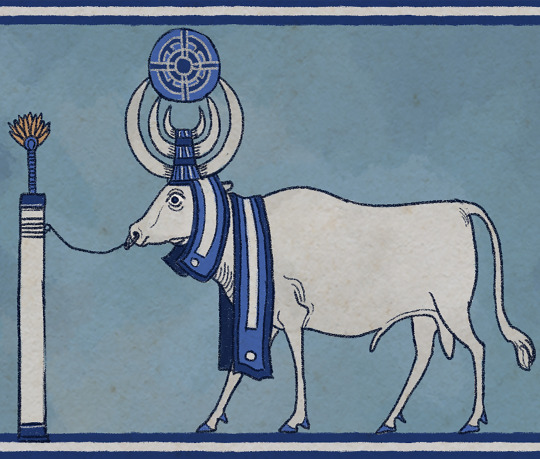
The god Od depicted in a symbolic representation of the word's creation as a docile bull awaiting sacrifice at the altar.
It carries the foundations of the world in its horns (via a very old cross and wheel motif representing cyclical totality, now mostly used as a visual shorthand for the world). It has three sets of horns in the form of the lunar crown, a mostly obsolete symbol of Wardi royalty. The altar is decked with an orange lily motif, after a hardy native water lily capable of regrowth in waters that dry seasonally. This symbol of rebirth and fertility in a sacrificial scene evokes the sacrifice-rebirth cycle initiated by Od's primordial slaying, which is fundamental to the world's functioning.
This is a rundown on interpretations of the god Od, a deity that has a long history in the lands surrounding the Mouth of the eastern inner seaway, and the impact (or lack thereof) of its primordial sacrificial nature in religious practice.
The god Od appears in religious practices throughout the region, having the utmost significance to the Imperial Wardi faith and lesser or separate significance elsewhere. The five religious practices wherein variants of Od has longstanding historical significance are the Burri Faith, the (Imperial) Wardi faith, the Old or 'Heathen' Wardi faith, the faiths of the Hill Tribes, and the Wogan faith.
—
The name Od and most significant elements of this god have origins in the Burri faith, which was transferred across the sea to the Wardi, Wogan, and Hill Tribes in the time of its second and third empire.
The Burri Od is described as having been the first being. The universe began as a cosmic sea and empty, eternal sky, loosely representative of a primordial and fundamental female and male dualism. Od appeared at their borders as a result of their interfacing, in the form of a giant aurochs or bison whose hooves touched the seafloor and horns touched the sky. He dipped his head down to the silt and lifted it out of the sea in his horns, thus forming the foundations of the world. His semen spilled into the cosmic sea and created the first seven gods, who then killed and divided their father, giving the world its form with his body.
While significant to the creation story, Od is of relatively little importance in everyday practice of the Burri faith and is not commonly worshiped (rather his seven children are, as they were the original and most powerful group of gods and created life).
Though the Burri Od takes on a sacrificial role in creation, animal sacrifice is not central to the Burri faith and is only performed in specific contexts (some festivals and holidays, in times of great strife, and to a few specific gods within a wide pantheon). The Burri faith does not involve a sacrifice-rebirth cycle as foundational to the world's functioning and god's health, and offerings are instead mostly gifts to please and rightly venerate the gods (or avert the malice of less savory deities). Offerings of food, drink, and precious materials are preferred by most gods. When animal sacrifice does occur, bulls ARE generally favored, as a reflection of their primordial counterpart.
—
The modern/Imperial Wardi Od is partly an import of the Burri tradition, which fused with both native monotheistic/animist worldviews and animal cults during the reign of the 2nd Burri Empire and developed into a new faith, which has presently become the state religion of the Wardi Empire.
‘Od’ in the Imperial Wardi context is best translated as capital G ‘God’ (anyone saying 'God' is, in-universe, saying the word 'Od'). Its creation of the world plays out in a very similar fashion, but the first human life (rather than other gods) is created by Its semen mingling with the cosmic sea. It willingly sacrificed Its body at the hands of the first people, who formed the world with its remains. Its shed blood spattered the earth and can be found today as meteoric iron, and animal life emerged from the mingling of the blood and the soil. Its death initiated the eternal cycle of sacrifice/death and rebirth, with each begetting the other and necessary for the world to function.
Od's body is dead and the world is Its corpse, but Its spirit survives in seven 'faces' which govern specific functions of reality and society. The connection of Its spirit to Its body is maintained by right practice, right prayer, and right sacrifice (in the form of food/drink offerings, bloodletting, common sacrifices of animals and occasional sacrifices of people).
The Imperial Wardi Od is generally regarded as genderless and dual-sexed, and referred to with a unique deified pronoun most effectively translated as capital I 'It'. Its sex is of relatively little significance to everyday religious practice, and discussions of Its dualism are more likely to occur in scholarly and philosophical contexts (like debates on the minutia of how Its semen, milk, and menstrual blood are all mentioned in old accounts of creation, and how the implications of this should translate to body politics and taboo).
—
The Old Wardi or ‘Heathen’ Wardi faith is a separate branch of old ethnic Wardi religion with significantly less Burri influence. This is a minority practice that only survives intact in isolation. Its practitioners are often hostile to all foreign influence and the Imperial Wardi faith, and suffer minority status and religious suppression.
Its version of Od is a more intact surviving remnant of ancient Wardi monotheism, as an androgynous creator god who lost physical form in the act of creation, and lives on as innumerable spirit aspects of its whole. This deity is referred to as Od in describing its primordial form, but is mostly referred to as a unique word for spirit, which is 'the Koya'. Practitioners of the old faith often identify the seven-faced Od as a twisted, foreign misinterpretation of the Koya.
This practice is somewhat animistic in nature and involves veneration of individual spirits that form a larger whole. Every aspect of the world has a spirit (plants, animals, minerals, bodies of water, etc) that exist in an ideal balance and as strands of an interconnected death-rebirth cycle. Each spirit is referred to as 'the [noun]-koya'. All discrete forms of life/matter have at least one attached Koya, while living beings also have a soul (which is separate from the Koya and reincarnated upon death).
Each Koya exists as a quintessential essence (ex: the lion-koya, the maize-koya, the iron-koya, the salt-koya) rather than separate individual objects having separate individual Koya, though unique landmarks do have their own (the Brilla River-koya is separate from the Yellowtail River-koya, though both share the freshwater-koya). Each individual may have multiple spirits (geese have the goose-koya, but also the bird-koya, the freshwater-koya, etc), a system that categorizes the world by intrinsic natures and precisely dictates how each physical body has unique metaphysical significance.
Animal sacrifice plays a somewhat similar role in Old Wardi religion to Imperial Wardi religion in the sense that it intends to maintain the stability and oneness of the divine spirit and a death-rebirth cycle. In this case, in freeing part of the spirit, balance can be brought to the Koya totality and restore the death-rebirth cycle. (Ex- in times of drought, the sacrificial release of the migratory goose-koya can encourage the return of the rains). This is far from the only way to re-balance the Koya. The most significant rites come in the form of songs that summon, release, or expel individual Koya as needed.
—
The Od of the Hill Tribes is a mingling of the Burri/Wardi Od and a much older goddess of fertility and agriculture, and is strongly associated with cattle and barley. This version of Od did not create the world and is only one of many gods, though she is said to have been born from the sea and carried up fertile soils with her (which is likely a direct result of Burri/Wardi influence). A few tribes venerate Od as a chief or patron god, though none are fully monotheistic (outside of converts on individual or clan levels).
She has a distant common ancestor with the Finn goddess Morgren (as the various Hill Tribes are descendants of a single proto-Finn population who migrated across the Viper seaway in prehistory), who is also a goddess of agriculture associated with fertility and barley (though in Morgren’s case, she is THE god of the staple crop barley and lacks the cattle association, and has no direct influence from the Burri/Wardi Od whatsoever)
Most of the tribes of Greathill do not practice animal sacrifice but offer grain and fruit to Od, and create a sanctified mix of crushed barley and oil that is anointed on livestock and people to confer Od's blessings of fertility. In some cases, the dominant cow in each herd is considered to belong to Od and will not be milked or slaughtered, and is buried with full rites upon its death.
—
The Od of the Wogan religion is distant to the rest of her counterparts, though has absorbed some Burri and modern Wardi elements over time and is referred to by the same name (a definite foreign import). She shares the fertility aspect ubiquitous to other Od variants, and is occasionally depicted as a cow.
She is a goddess of the earth and sea, who was wed to Iapedi, the god of the sky. The ocean is functionally her womb (which may be trace Burri/Imperial Wardi influence, or merely coincidental) and all life emerged from within.
These are the only two true gods to the Wogan, though there is an additional element wherein the mating of Od and Iapedi also created innumerable spirits found throughout nature that act as an animating life-force. The concept is very similar to the Old Wardi '-Koya' (as the two faiths had close common ancestry), though this one lacks the sort of taxonomical system of its counterpart, and only ascribes spirits to living things. Each spirit in the Wogan religion is distinct (rather than each type of animal, plant, etc potentially having multiple spirits), and the spirits existing in each body are part of a greater whole that exists as a sentient consciousness that can be communed with (ex: each lion has A lion spirit, all part of The lion spirit, the latter of which can be engaged with).
Wogan religion strongly retains ancient animal cult practices common across the ancient Wardi-Wogan sphere, some of which have been translated into the faces of God in the Imperial Wardi context (both religions share commonalities of lions, snakes, albatross, migratory ducks, and cattle being significant sacred animals). The function of animal worship to the Wogan is communication and interface with the greater spirit of each animal (which can range anywhere from gaining personal blessing and protection, to dispelling plague, to 'lay off on eating our crops').
The Wogan faith does not involve animal sacrifice (though ancient variants almost certainly did). This is connected to traditional vegetarianism among the Wogan (as a means to avoid offending animal spirits), which some view as a point of pride and a mark of distinction against their Imperial Wardi majority.
#I don't remember my own tagging system....whatever#blightseed#Should be noted that there are other religions that have adopted Od in various capacities as a result of the Wardi Empire's#expansion/role in the trade network/immigrant communities#But these are very recent adoptions whereas the five of this post have Od influences going back almost a millenia
410 notes
·
View notes
Text
The Best Cartoon Siblings!
(In My Opinion)


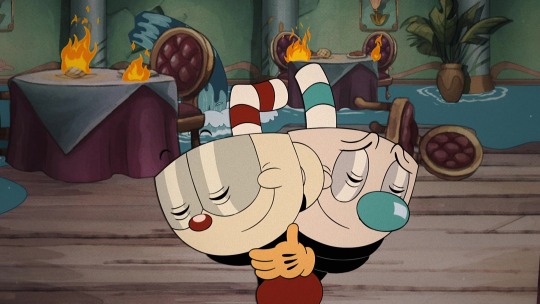
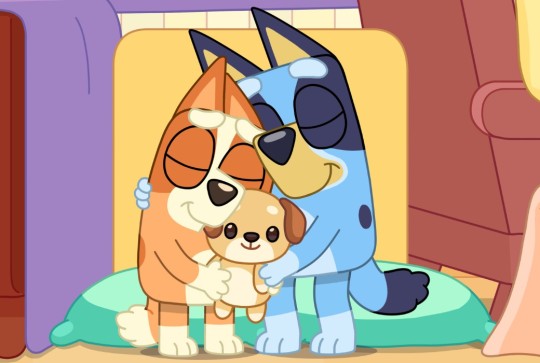

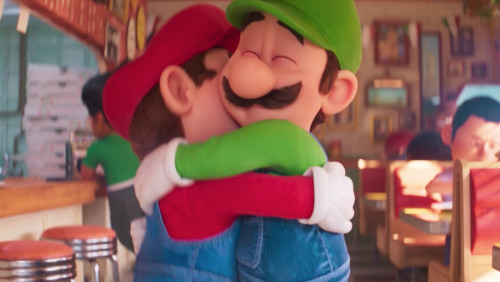
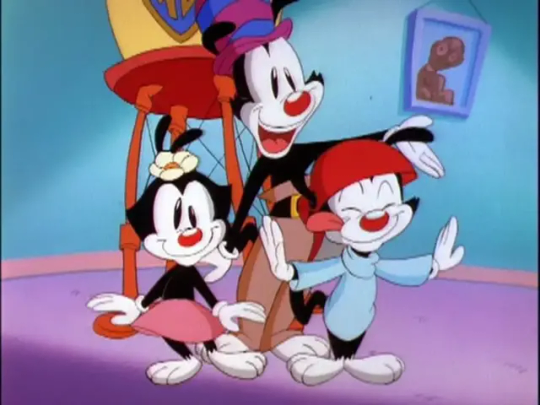
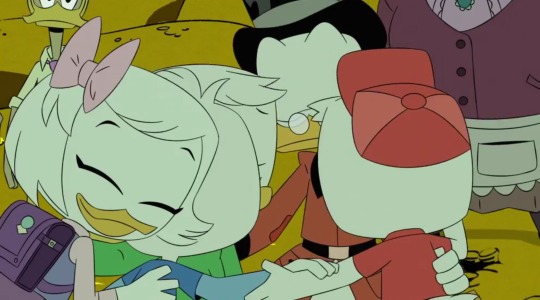
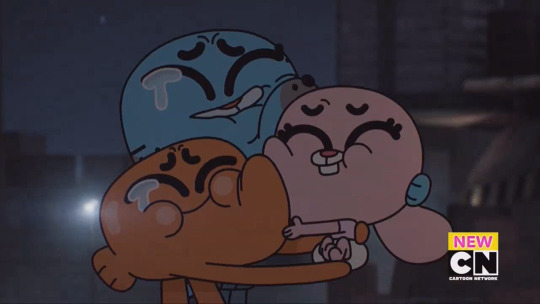



#cartoons#cartoon community#siblings being siblings#disney junior#fox animation#studio mdhr#netflix#abc kids#sony pictures animation#illumination entertainment#warner bros animation#amblin entertainment#disney#disney television animation#cartoon network#sofia the first#bobs burgers#cuphead#cuphead ddwtd#the cuphead show#bluey#the mitchells vs the machines#super mario bros#animaniacs#ducktales 2017#amazing world of gumball#gravity falls#raggedy ann and andy a musical adventure#phineas and ferb#random post
276 notes
·
View notes
Text

In light of the egregious actions carried out by the National Novel Writing Month organization, there has been a wide variety of different challenges created in order to keep the communal aspect of the challenge alive while distancing themselves from the official organization. This blog, at its most basic, is designed to be a hub in which various writing challenges are advertised so that the communal aspects of the writing community can continue in November and beyond. The spirit of Nanowrimo has long since expanded beyond the original group that began the challenge, and writers can (and should!) create their own spins on the idea.
With all of this in mind, I am proud to introduce the Writing Challenges Network!
However, this is not all that this could be. As it is the early days, I have set up a new discord, this tumblr, and a twitter page in the hopes of connecting writers to challenges throughout the year.
The writing community, as a whole, is welcoming and always wanting to lift each other up in reaching their goals. This network will hopefully be an avenue to provide those values to others and provide a place of connection. I would love anyone interested in fostering these values and are willing to brainstorm to please reach out! This is for the community, and thus should be shaped by and for all members of it.
I personally will be hosting quarterly writing challenges via another blog so that there are more challenges than just in November! If you are interested in the seasonal/quarterly challenge, the current @gothnowrimo will be happening in October and will have prompts, themes, and other fun posts to help get in the spooky writing spirit. The next one will be in February!
If you would like to submit a challenge or would like to connect, you can send an ask or connect to me in the discord community.
#nanowrimo#writeblr#national novel writing month#writers of tumblr#writers on tumblr#writerscommunity#writing community#creative writing#writing challenge#writing challenges#writing challenges network
293 notes
·
View notes
Text
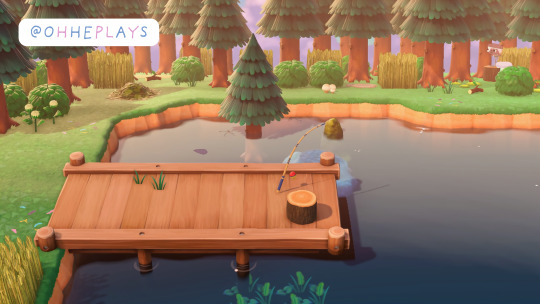
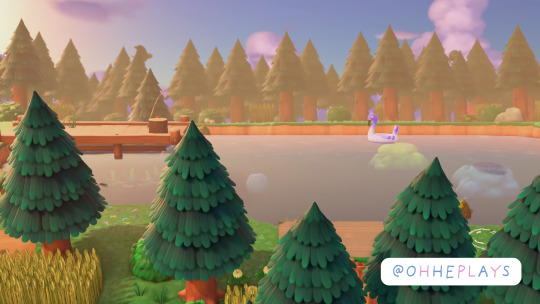
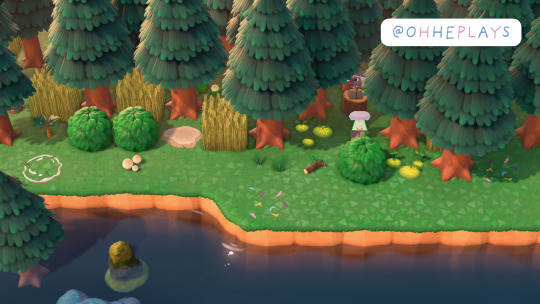
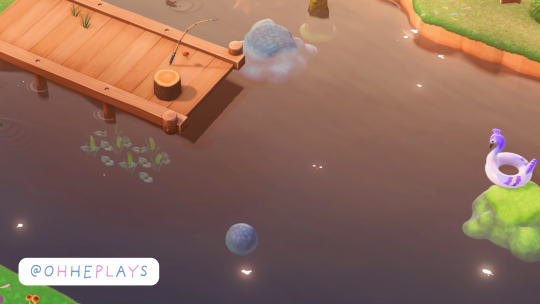
Need a break from the summer heat? Take a dip in the lake! 🌊🥽🌲
#acnh#animalcrossingnewhorizons#animalcrossing#mine#acnh community#animal crossing#animal crossing new horizons#summer camp island#summer camp#new jersey#newjersey#ohheplays#summercampisland#cartoon network#acnh inspo
292 notes
·
View notes
Text
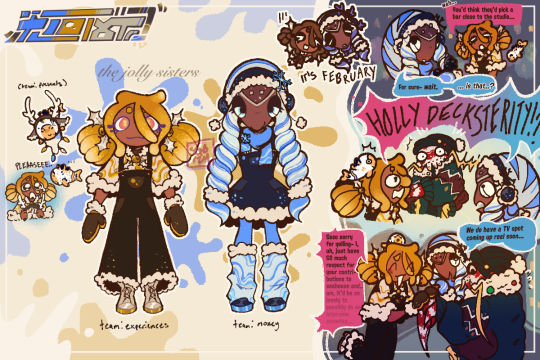
a very niche celebrity frostyfest (now on dvd~!)
#splatoon#splatoon 3#splatoon art#splatoon idol oc#splatoon idols#splatoon oc#frostyfest#decksterity#splatbands#(headcanon design!!)#digital art#they are.... a randall's pistol shrimp! also known as the candy cane shrimp ;D#first initial concept was a ping-pong tree sponge or coral but with ornament decorations. but the 6 dollar srimp special won in the end#i think districts of inkopolis participating in news for widespread + local splatfests is a fun idea#which means possible local tv spots for bands baby!! and a really funny idea of idols interviewing their community on the street#tidebyte hosts a radio show so sometimes an opportunity by the station's partnership with networks might arise...maybe#i can still post this before chocolate fest btw. my friend the Groundhog says it’s 6 more weeks of winter#undescribed#^ (this won't get an img description from yours truly for a bit! apologies in advance for the wait ;u;)#my art#my ocs#oc: eri#oc: dess#oc: chip
111 notes
·
View notes
Text
How To Network 🤝📱💬
Have a Plan: Because everyone is important, it's really important to know what you're good at. Before you go to any networking event, figure out what you're good at – like things you can do well, what you know, and the people you know. Plan what you want to talk about, especially how you can help others, either now or later on.
Start with Who You Know: Talk to people you already know, like friends and colleagues. Ask if they can introduce you to others.
Go to Events: Attend conferences, seminars, workshops, industry meetups, and social gatherings related to your field of interest.
Use Social Media: Make profiles on websites like LinkedIn or Instagram to meet people in your niche online.
Elevator Pitch: Create a concise and engaging intro that highlights who you are, what you do, and what you're seeking. This way you can make a strong first impression.
Ask Good Questions: When you talk to someone, ask questions that show you're interested in what they're saying.
Provide Value: Networking is a two-way street. Offer your expertise, assistance, or connections to others whenever possible. When you start paying attention to what people can do, you might see that one person could help another person. Try to introduce people who you think have something valuable to share. When you make these good connections, you're helping the networking event go well. This will help you establish a good reputation and create strong relationships.
Say Thank You: After meeting, send a message to say you enjoyed the talk.
Follow up & Follow Through: If you said you would talk to someone later, make sure you actually do it and let them know you're still happy to help. If you promised to introduce one person to another, take a moment to make that introduction.These small things really matter to people, and just one introduction could make someone's life better.
Meet Different People: Don't just talk to the same kind of people. Meet people from different jobs and places.
Never dismiss anyone as unimportant: Don't think someone is not important just because of their job title. They could know important things or have helpful friends you wouldn't know about if you didn't give them a chance.
Join Groups: Be part of clubs or groups related to your work. You can meet more people there.
Be Yourself: Just be you. Don't pretend to be someone else.
Learn New Things: Keep learning about your interests. It helps you have better conversations.
#social skills#relationships#business tips#career#life advice#business women#women in business#networking#entrepreneurship#events#level up journey#glow up tips#boss woman#girl boss#women in tech#social interaction#communication#self confidence#adulting#advice
2K notes
·
View notes
Text


Bravolebrities of San Myshuno 🗽
Meet my version of Paige & Craig from Summer House x Southern Charm!
#farfallasims#i am a huge fan of the bravo network if you cant tell#sims 4#sanmyshuno*#mytownies#the sims 4#sims 4 maxis match#sims#sims 4 screenshots#the sims community#ts4 simblr#thesims4#sims4#the sims4#showusyoursims#sims 4 simblr#simblr#ts4
349 notes
·
View notes
Text






random gifs from this video because he's just too cute 🎀
#austin butler#austinbutleredit#abutleredit#g:austin#pls let me know in case im not allowed to use these tags#i came from kpop communities where there are closed networks#lol
450 notes
·
View notes